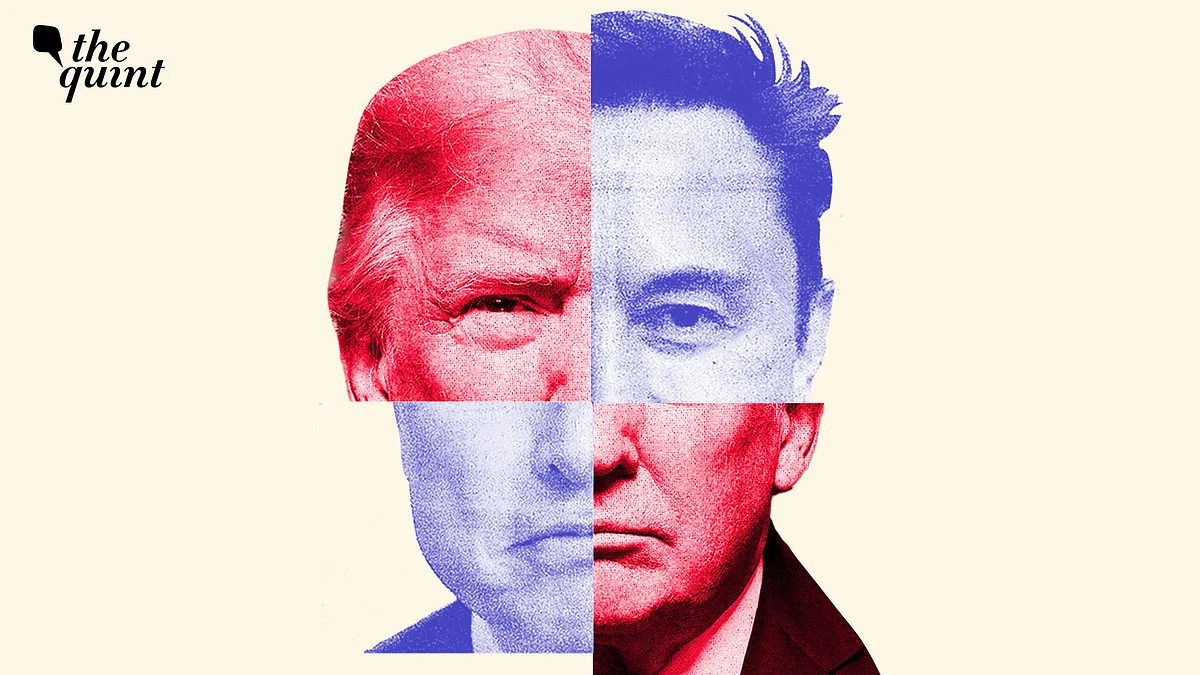
Trump vs Musk: When a Bromance Becomes a Coup
Neither Trump not Musk need the money; both want the power. But Trump is a dealmaker who likes to negotiate.

advertisement
If it were Africa, the ugly spat between US President Donald Trump and billionaire Elon Musk would be called an attempted coup.
But in the US, they call it attempted impeachment.
We have the world’s richest man endorsing a rebellion within the Republican Party, so that Trump would be replaced by his vice-presidential pick, JD Vance.
What does all this tell us about the United States, more than it does about these two-not-so gentlemen?
America's Mask Off
It shows that once the masks are off, Americans aren’t much different from the less democratic societies they are so fond of looking down upon. You'd think two centuries of a robust media and independent institutions might have done some magic in a country that evolved from slave trade and institutionalised racism to pluralism and LGBTQ rights.
You could just as easily say that about New York or San Francisco as well. Hollywood, Silicon Valley, and Wall Street remain pockets of affluent, magnanimous pluralism with pretensions to a liberal global order. But like South Mumbai or South Delhi, they're politically isolated when right-wing populism takes over.
Middle America remains just that: predominantly white, conservative, self-centred and not particularly consistent in its morality.
It is every man for himself, with U-turns easier than one might have expected from a public bromance, in which Musk funded a new president, and Trump admired an efficiency czar, just weeks ago.
Musk gave his game away when he floated the idea of a new political party for the “80 percent in the middle” of the US—needed, in his view, to combat Trumpism as represented by the “Big, Beautiful Bill” that failed to meet Musk’s budgetary axing standards.
Two Egos, No Room for Compromise
Here’s where we encounter a psychological chasm between the two. Neither needs the money; both want the power. But Trump is a dealmaker. He likes to negotiate—be it with India, China, the House, or the Senate. He is a pragmatist from the real estate business, wanting the best price he can get to stay and rule.
Not Musk.
Efficient Elon takes his own ideas far too seriously. It's his way or the highway. With his origins in apartheid-era South Africa and phenomenal growth in an engineering business, he sees things in black and white.
An autocrat who rarely bends, Musk sees the TACO factor (Trump Always Chickens Out) as betrayal rather than pragmatism.
A New Kind of Coup?
This is where the game shifts. If Musk must have his way with his 80-20 rule, he needs a huge, ruthless, opportunistic bunch—endorsed by what he imagines is a supportive social constituency.
Why would this happen in a democracy in which states have significant autonomy, parties are internally split on financial bills, and every House member has their own constituency to manage?
The answer must lie in the subtext of Musk’s tweets: he can buy them all out, while Middle America clings to his all-encompassing theory of everything.
Deals, Delusions, and Democratic Fatigue
Will the departed baron of the Department of Government Efficiency (DOGE) re-emerge as Kingmaker 2.0—or will he realise that business tycoons have political limitations?
We already see Musk mildly backtracking from his threats to cancel NASA and defence contracts for SpaceX (and you thought only the wokes he hates did the cancelling).
Whatever the outcome, America won’t be the same again. The political bromance may yet re-emerge, like a Richard Burton-Elizabeth Taylor marriage in old Hollywood, or like a kiss and make up episode in a maudlin soap opera.
What we do know is that the US should avoid exporting liberalism, pluralism, and corruption-free democracy until it gets its own house in order.
(The writer is a senior journalist and commentator who has worked for Reuters, Economic Times, Business Standard, and Hindustan Times. He can be reached on Twitter @madversity. This is an opinion article and the views expressed are the author’s own. The Quint neither endorses nor is responsible for them.)
- Access to all paywalled content on site
- Ad-free experience across The Quint
- Early previews of our Special Projects
Published: undefined